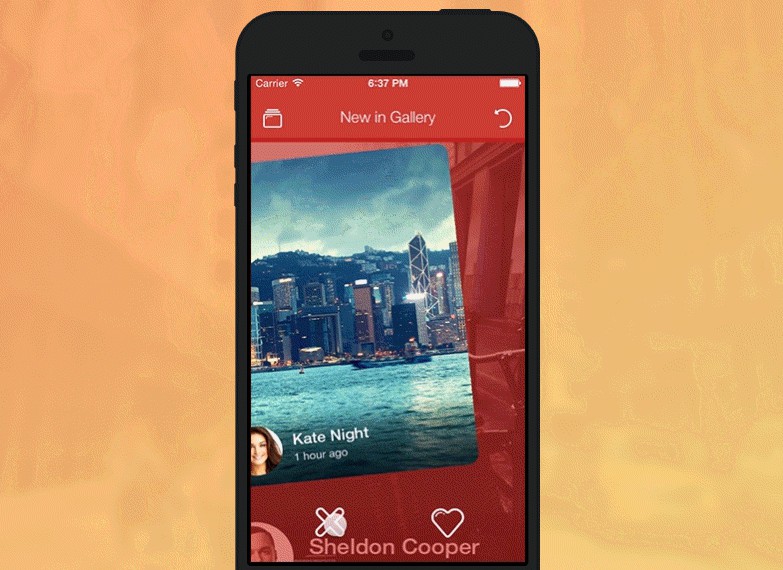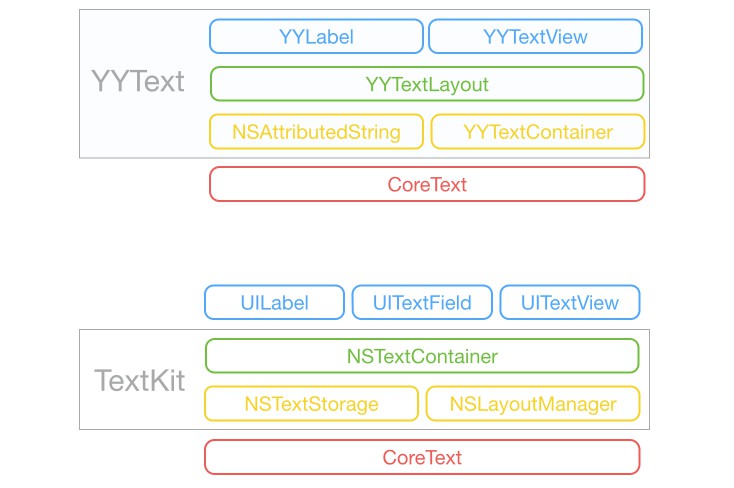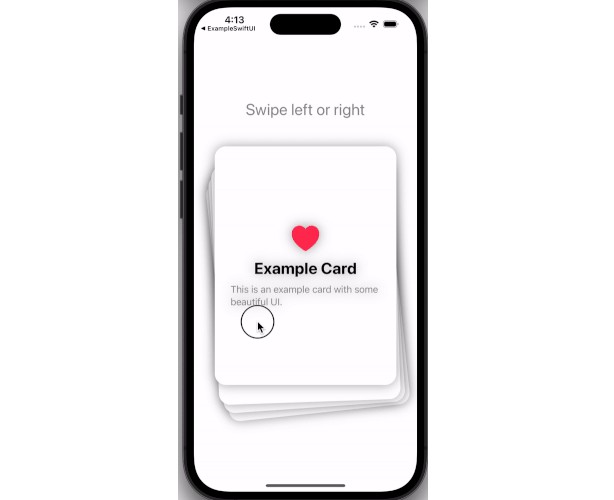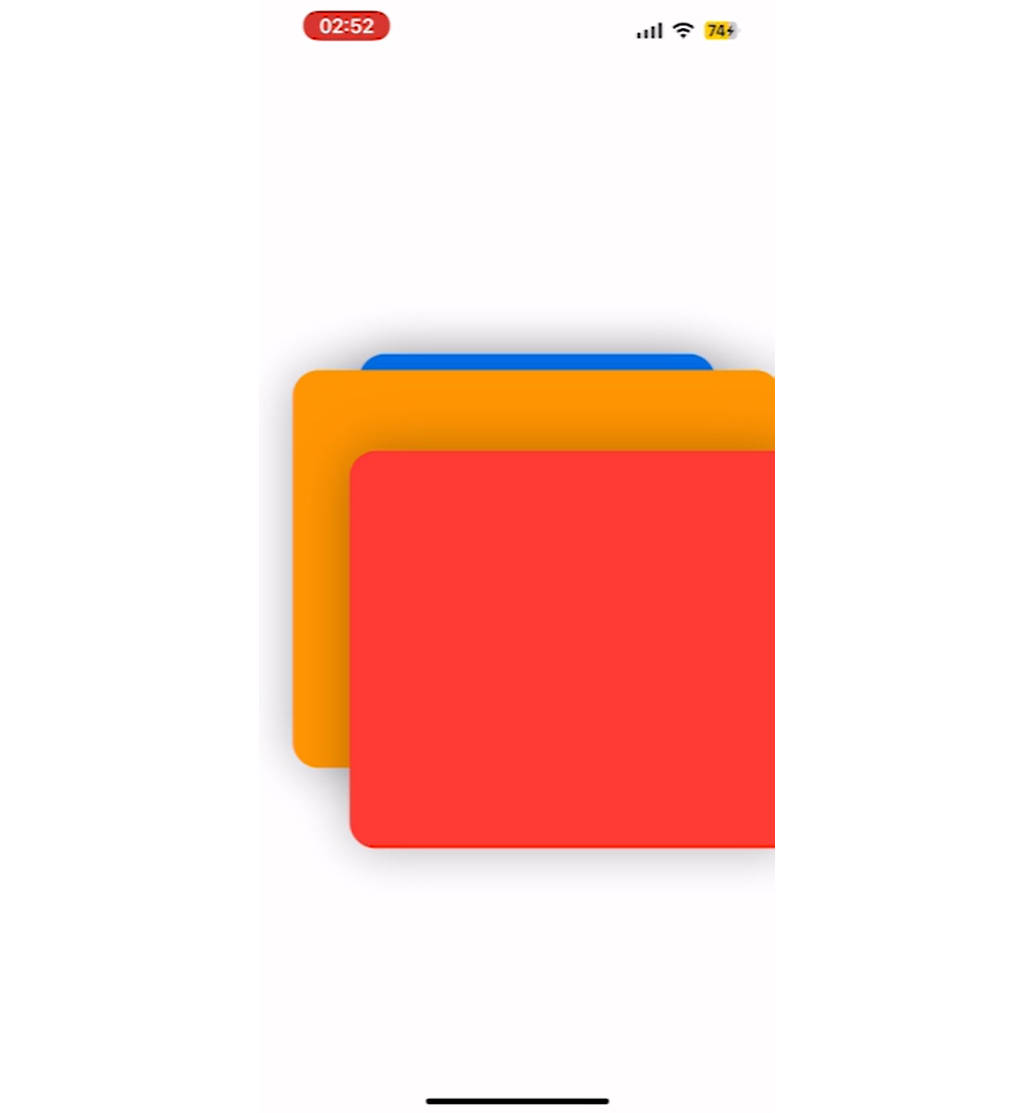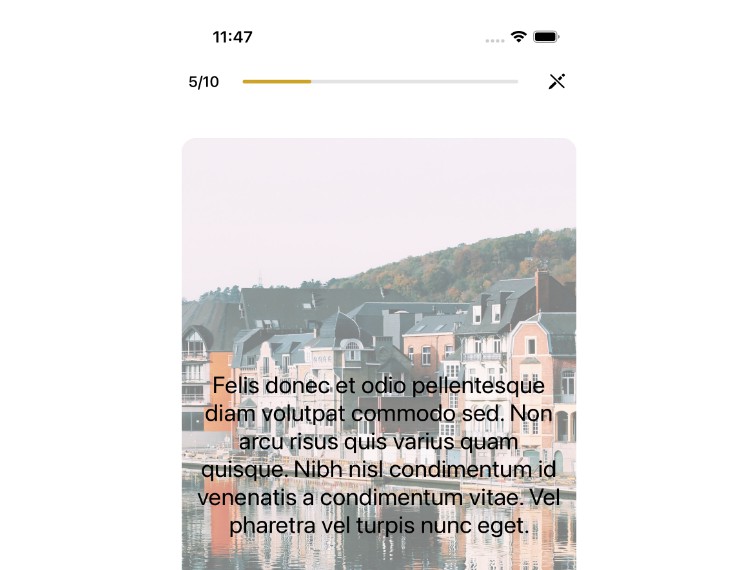KolodaView
KolodaView is a class designed to simplify the implementation of Tinder like cards on iOS.
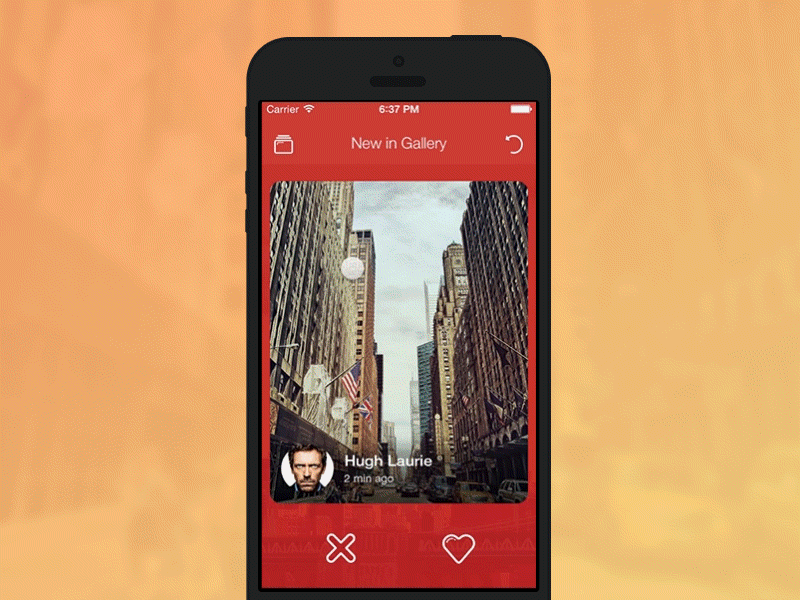
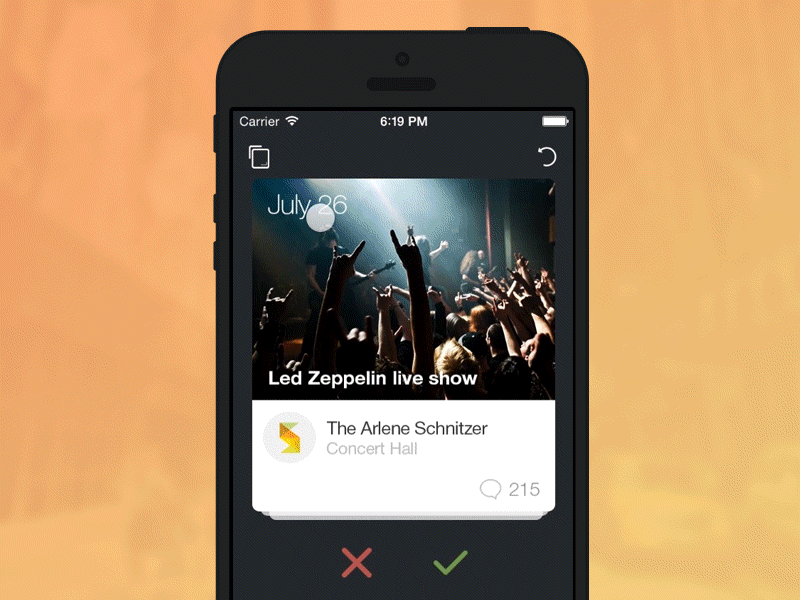
Purpose
KolodaView is a class designed to simplify the implementation of Tinder like cards on iOS. It adds convenient functionality such as a UITableView-style dataSource/delegate interface for loading views dynamically, and efficient view loading, unloading .
Supported OS & SDK Versions
- Supported build target - iOS 11.0 (Xcode 9)
ARC Compatibility
KolodaView requires ARC.
Thread Safety
KolodaView is subclassed from UIView and - as with all UIKit components - it should only be accessed from the main thread. You may wish to use threads for loading or updating KolodaView contents or items, but always ensure that once your content has loaded, you switch back to the main thread before updating the KolodaView.
Installation
To install via CocoaPods add this lines to your Podfile. You need CocoaPods v. 1.1 or higher
use_frameworks!
pod "Koloda"
To install via Carthage add this lines to your Cartfile
github "Yalantis/Koloda"
To install manually the KolodaView class in an app, just drag the KolodaView, DraggableCardView, OverlayView class files (demo files and assets are not needed) into your project. Also you need to install facebook-pop. Or add bridging header if you are using CocoaPods.
Usage
-
Import
Kolodamodule to yourMyKolodaViewControllerclassimport Koloda -
Add
KolodaViewtoMyKolodaViewController, then set dataSource and delegate for itclass MyKolodaViewController: UIViewController { @IBOutlet weak var kolodaView: KolodaView! override func viewDidLoad() { super.viewDidLoad() kolodaView.dataSource = self kolodaView.delegate = self } } -
Conform your
MyKolodaViewControllertoKolodaViewDelegateprotocol and override some methods if you need, e.g.extension MyKolodaViewController: KolodaViewDelegate { func kolodaDidRunOutOfCards(_ koloda: KolodaView) { koloda.reloadData() } func koloda(_ koloda: KolodaView, didSelectCardAt index: Int) { UIApplication.shared.openURL(URL(string: "https://yalantis.com/")!) } } -
Conform
MyKolodaViewControllertoKolodaViewDataSourceprotocol and implement all the methods , e.g.extension MyKolodaViewController: KolodaViewDataSource { func kolodaNumberOfCards(_ koloda:KolodaView) -> Int { return images.count } func kolodaSpeedThatCardShouldDrag(_ koloda: KolodaView) -> DragSpeed { return .fast } func koloda(_ koloda: KolodaView, viewForCardAt index: Int) -> UIView { return UIImageView(image: images[index]) } func koloda(_ koloda: KolodaView, viewForCardOverlayAt index: Int) -> OverlayView? { return Bundle.main.loadNibNamed("OverlayView", owner: self, options: nil)[0] as? OverlayView } } -
KolodaViewworks with default implementation. Override it to customize its behavior
Also check out an example project with carthage.
Properties
The KolodaView has the following properties:
weak var dataSource: KolodaViewDataSource?
An object that supports the KolodaViewDataSource protocol and can provide views to populate the KolodaView.
weak var delegate: KolodaViewDelegate?
An object that supports the KolodaViewDelegate protocol and can respond to KolodaView events.
private(set) public var currentCardIndex
The index of front card in the KolodaView (read only).
private(set) public var countOfCards
The count of cards in the KolodaView (read only). To set this, implement the kolodaNumberOfCards: dataSource method.
public var countOfVisibleCards
The count of displayed cards in the KolodaView.
Methods
The KolodaView class has the following methods:
public func reloadData()
This method reloads all KolodaView item views from the dataSource and refreshes the display.
public func resetCurrentCardIndex()
This method resets currentCardIndex and calls reloadData, so KolodaView loads from the beginning.
public func revertAction()
Applies undo animation and decrement currentCardIndex.
public func applyAppearAnimationIfNeeded()
Applies appear animation if needed.
public func swipe(_ direction: SwipeResultDirection, force: Bool = false)
Applies swipe animation and action, increment currentCardIndex.
open func frameForCard(at index: Int) -> CGRect
Calculates frames for cards. Useful for overriding. See example to learn more about it.
Protocols
The KolodaView follows the Apple convention for data-driven views by providing two protocol interfaces, KolodaViewDataSource and KolodaViewDelegate.
The KolodaViewDataSource protocol has the following methods:
func koloda(_ kolodaNumberOfCards koloda: KolodaView) -> Int
Return the number of items (views) in the KolodaView.
func koloda(_ koloda: KolodaView, viewForCardAt index: Int) -> UIView
Return a view to be displayed at the specified index in the KolodaView.
func koloda(_ koloda: KolodaView, viewForCardOverlayAt index: Int) -> OverlayView?
Return a view for card overlay at the specified index. For setting custom overlay action on swiping(left/right), you should override didSet of overlayState property in OverlayView. (See Example)
func kolodaSpeedThatCardShouldDrag(_ koloda: KolodaView) -> DragSpeed
Allow management of the swipe animation duration
The KolodaViewDelegate protocol has the following methods:
func koloda(_ koloda: KolodaView, allowedDirectionsForIndex index: Int) -> [SwipeResultDirection]
Return the allowed directions for a given card, defaults to [.left, .right]
func koloda(_ koloda: KolodaView, shouldSwipeCardAt index: Int, in direction: SwipeResultDirection) -> Bool
This method is called before the KolodaView swipes card. Return true or false to allow or deny the swipe.
func koloda(_ koloda: KolodaView, didSwipeCardAt index: Int, in direction: SwipeResultDirection)
This method is called whenever the KolodaView swipes card. It is called regardless of whether the card was swiped programatically or through user interaction.
func kolodaDidRunOutOfCards(_ koloda: KolodaView)
This method is called when the KolodaView has no cards to display.
func koloda(_ koloda: KolodaView, didSelectCardAt index: Int)
This method is called when one of cards is tapped.
func kolodaShouldApplyAppearAnimation(_ koloda: KolodaView) -> Bool
This method is fired on reload, when any cards are displayed. If you return YES from the method or don't implement it, the koloda will apply appear animation.
func kolodaShouldMoveBackgroundCard(_ koloda: KolodaView) -> Bool
This method is fired on start of front card swipping. If you return YES from the method or don't implement it, the koloda will move background card with dragging of front card.
func kolodaShouldTransparentizeNextCard(_ koloda: KolodaView) -> Bool
This method is fired on koloda's layout and after swiping. If you return YES from the method or don't implement it, the koloda will transparentize next card below front card.
func koloda(_ koloda: KolodaView, draggedCardWithPercentage finishPercentage: CGFloat, in direction: SwipeResultDirection)
This method is called whenever the KolodaView recognizes card dragging event.
func kolodaSwipeThresholdRatioMargin(_ koloda: KolodaView) -> CGFloat?
Return the percentage of the distance between the center of the card and the edge at the drag direction that needs to be dragged in order to trigger a swipe. The default behavior (or returning NIL) will set this threshold to half of the distance
func kolodaDidResetCard(_ koloda: KolodaView)
This method is fired after resetting the card.
func koloda(_ koloda: KolodaView, didShowCardAt index: Int)
This method is called after a card has been shown, after animation is complete
func koloda(_ koloda: KolodaView, didRewindTo index: Int)
This method is called after a card was rewound, after animation is complete
func koloda(_ koloda: KolodaView, shouldDragCardAt index: Int) -> Bool
This method is called when the card is beginning to be dragged. If you return YES from the method or
don't implement it, the card will move in the direction of the drag. If you return NO the card will
not move.
